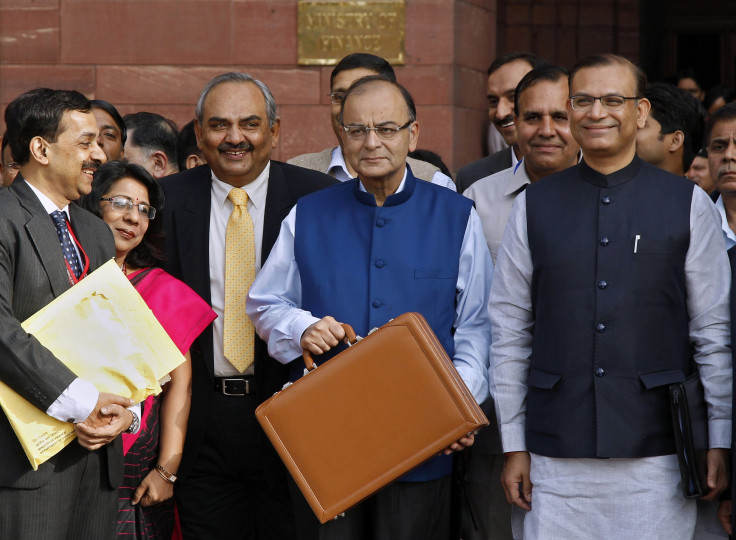India Unveils Federal Budget, Finance Minister Says Country 'Is About To Take Off'

NEW DELHI -- India on Saturday unveiled a please-all federal budget that ostensibly sought to balance the interests of the country’s impoverished millions and its business community.
“India is about to take off,” the country's finance minister Arun Jaitley said, in his budget speech to parliament. “The world is predicting that this is India’s chance to fly.”
Presenting the first full budget of the Narendra Modi-led government, following a landslide election victory in May last year, Jaitley said that the government would provide a universal social security safety net and several new pension schemes to assist the poorest of its citizens.
Jaitley sought to unburden the corporate sector by reducing corporate tax to 25 percent from 30 percent. He abolished the “wealth tax,” and replaced it with a 2 percent surcharge on the incomes of the “super rich”, who earn more than $150,000 a year. The money obtained from this additional tax would go toward infrastructure funding.
Although the budget incentivized savings, it did not provide any direct tax relief to the middle or low income classes.
“I thought it was more prudent to make people save more rather than make this a consumption society,” Jaitley reportedly said in an interview following his budget speech. However, he proposed a scheme to monetize about 20,000 tons of privately held gold by introducing a gold deposit account. Jaitley also said that the government would come up with sovereign bonds to discourage the purchase of physical gold. This might help reduce gold imports to India, which is currently the world’s biggest gold importer.
Jaitley allocated an additional $11 billion toward spending on infrastructure and also sought to rein in the country’s fiscal deficit to 3 percent of its gross domestic product over the next three years.
In a bid to address the country’s chronic power shortage, Jaitley said that India would set up at least four new “ultra mega” power projects that would supply electricity on a “plug and play” basis to its national grid.
Prime Minister Modi tweeted that his government’s budget has a “distinct focus on farmers, youth, poor, neo-middle class” and the common man. “[The] budget is investment friendly and removes all doubts on tax issues. It assures investors that we have a stable, fair and predictable tax system,” Modi said in a subsequent tweet.
While India is expected to grow at 7.4 percent this year, Jaitley hoped that in the near future, the economy would grow at an accelerated pace of 8 to 8.5 percent, and that by March 2016, inflation would be at 5 percent.
Jaitley’s budget speech also focused on the creation of a public debt management agency and new bankruptcy laws. The finance minister sought to nurture start-ups by creating a special investor capital fund. In the last few years, India has seen the growth of several technology start-ups, especially in the e-commerce arena.
While the government sought to control its burgeoning subsidy bill, Jaitley said that it would continue with Mgnrega, a rural employment generation scheme, which was the flagship project of the previous Congress-led government. The government would also seek to spend billions on defense and petroleum products, the bulk of which the country imports.
Jaitley announced the merger of India’s Forward Markets Commission with its market regulator -- the Securities and Exchange Board of India. He also said that India would implement new laws, with provisions for stringent penalties, to curb "black money," referring to untaxed and unaccounted wealth.
The reaction to the budget from the business community was largely positive.
“The finance minister has come out with a pragmatic budget which is directionally focused at achieving growth and keeping the fiscal prudence in mind,” Richard Rekhy, CEO of KPMG in India, said, in an emailed statement. "The focus is on ease of doing business in India and increased infrastructure spend. Measures like [the] new bankruptcy legislation, startup entrepreneur’s funds, GST (Good and Services Tax) rollout by FY 2016, deferral of GAAR (General Anti-Avoidance Rules) will definitely support the cause of ease of doing business in India."
After a day of volatile trading, the country's stock markets closed higher on Saturday. While the 30-share Sensex closed 141 points higher, the 50-share Nifty gained 57 points.
© Copyright IBTimes 2025. All rights reserved.





















